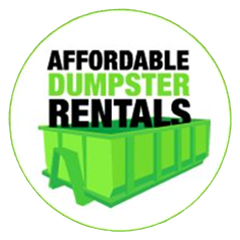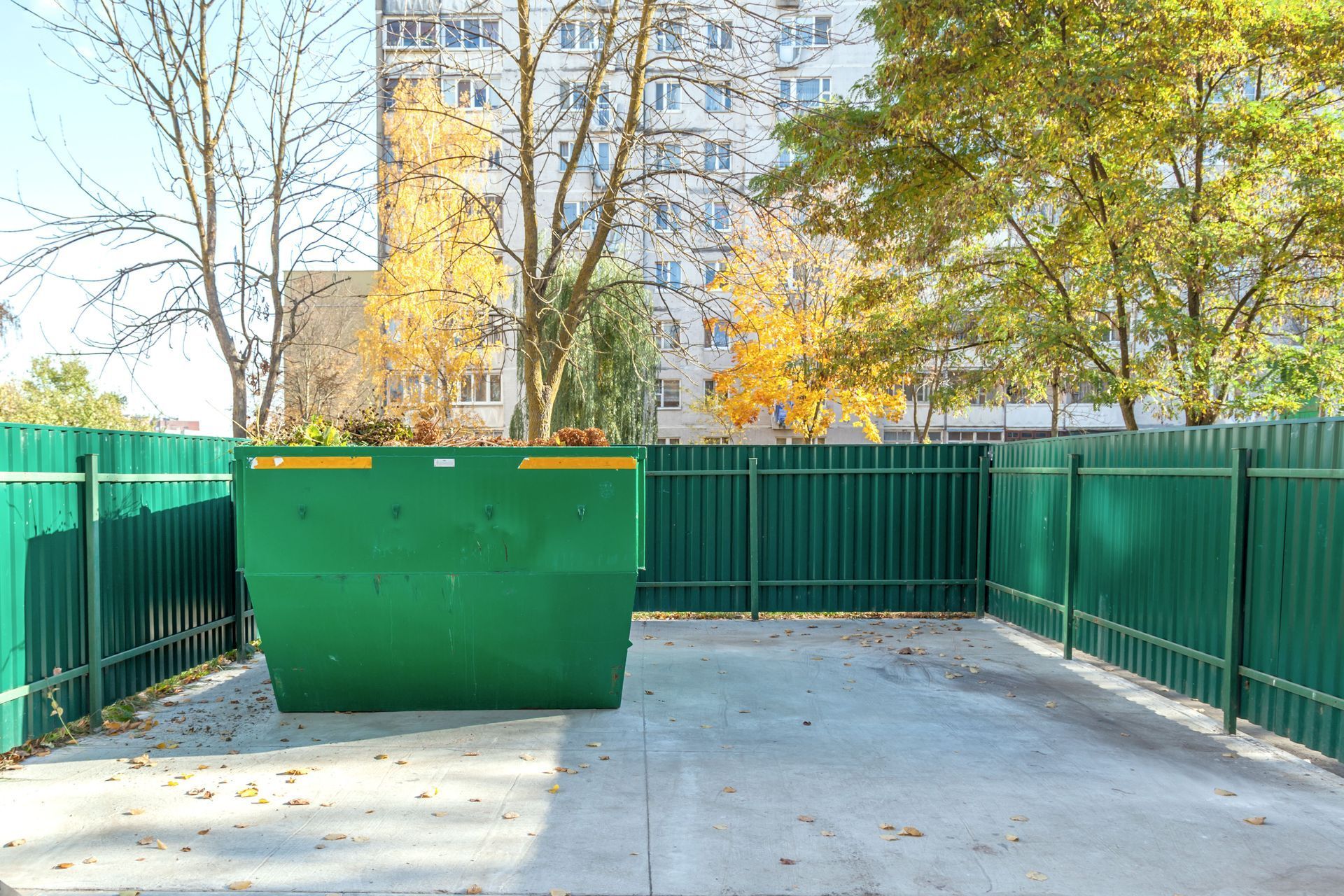October 10, 2025
Dumpster rentals provide a practical solution for efficient waste management during home renovations, property cleanouts, and event planning. With a wide array of choices available, finding the right dumpster service can seem like a daunting task. By understanding the critical factors involved, including size, duration, cost, logistics, and vendor reliability, you can make an informed decision that supports your project needs. The accessibility of modern dumpster rentals significantly eases the process.
By acknowledging these considerations upfront, you can ensure a smooth and successful experience. Whether you're clearing out an old basement or managing waste from a construction site, understanding these elements can save you both time and money. Understanding these logistical details does not just optimize the rental experience but also ensures compliance with waste disposal standards, reducing environmental impact. Let's delve into three key factors that play into choosing the perfect dumpster rental.
1. Dumpster Size
Understanding Volume Needs
Choosing the correct dumpster size is pivotal in efficient waste management. Estimating the volume of waste you will produce accurately helps you avoid unnecessary costs and logistical challenges. Start by analyzing the nature and scope of your project. A small renovation might require a 10-yard unit, while a full-scale construction job could necessitate a 40-yard dumpster. According to Consumer Affairs, a 15-yard dumpster, one of the most common dumpster sizes, can fit between 2,000 and 4,000 pounds of waste. Consulting with rental experts or providing detailed project descriptions can further aid accuracy.
Calculating potential waste volume in cubic yards can prevent overpricing and operational inefficiency. Larger dumpsters, while tempting for their convenience, may incur higher costs and require more space. Disposing of waste responsibly involves aligning the dumpster size with your specific waste disposal needs. Sorting waste by type, such as construction debris versus general waste, can further refine your size requirements. Careful planning and volume estimation underpin successful dumpster usage.
Choosing the correct dumpster size is pivotal in efficient waste management. Estimating the volume of waste you will produce accurately helps you avoid unnecessary costs and logistical challenges. Start by analyzing the nature and scope of your project. A small renovation might require a 10-yard unit, while a full-scale construction job could necessitate a 40-yard dumpster. According to Consumer Affairs, a 15-yard dumpster, one of the most common dumpster sizes, can fit between 2,000 and 4,000 pounds of waste. Consulting with rental experts or providing detailed project descriptions can further aid accuracy.
Calculating potential waste volume in cubic yards can prevent overpricing and operational inefficiency. Larger dumpsters, while tempting for their convenience, may incur higher costs and require more space. Disposing of waste responsibly involves aligning the dumpster size with your specific waste disposal needs. Sorting waste by type, such as construction debris versus general waste, can further refine your size requirements. Careful planning and volume estimation underpin successful dumpster usage.
Common Size Categories
Dumpster sizes typically range from 10 to 40 cubic yards, catering to various project scales. Smaller dumpsters, like the 10-yard size, are generally suited for minor home cleanouts or bathroom renovations. In our experience, a medium-sized dumpster, between 20 and 30 yards, is ideal for larger jobs such as central home remodels or small construction projects. For extensive tasks, ranging from major construction endeavors to comprehensive commercial cleanouts, a 40-yard container may be necessary. Each size category aligns with distinct project needs and balances cost and capacity effectively.
Selecting the appropriate size from standard categories helps manage waste efficiently and avoid additional fees. Overestimating the size requirement can result in unnecessary expenses, while underestimating can lead to overloading penalties. Industry-standard categories simplify the decision-making process by offering predefined dimensions commonly used for specific projects. By aligning your choice with these categories, you enhance the efficiency of your rental experience. Study your project's specifics carefully to choose a category that provides ample space without exceeding your budget.
Dumpster sizes typically range from 10 to 40 cubic yards, catering to various project scales. Smaller dumpsters, like the 10-yard size, are generally suited for minor home cleanouts or bathroom renovations. In our experience, a medium-sized dumpster, between 20 and 30 yards, is ideal for larger jobs such as central home remodels or small construction projects. For extensive tasks, ranging from major construction endeavors to comprehensive commercial cleanouts, a 40-yard container may be necessary. Each size category aligns with distinct project needs and balances cost and capacity effectively.
Selecting the appropriate size from standard categories helps manage waste efficiently and avoid additional fees. Overestimating the size requirement can result in unnecessary expenses, while underestimating can lead to overloading penalties. Industry-standard categories simplify the decision-making process by offering predefined dimensions commonly used for specific projects. By aligning your choice with these categories, you enhance the efficiency of your rental experience. Study your project's specifics carefully to choose a category that provides ample space without exceeding your budget.
2. Rental Duration
Project Timeline Assessment
Defining your project's timeline is fundamental to arranging the rental duration of a dumpster efficiently. A well-mapped timeline ensures waste management solutions align with your operational schedules. This alignment not only optimizes resource utilization but also prevents unnecessary rental costs. Assessing decision metrics considering the estimated completion timeline provides clarity in managing interim logistics. This methodology ensures your dumpster rental fits seamlessly into the broader scope of the project.
A comprehensive timeline offers a structured approach to waste disposal needs, specifying periods with low, medium, or high waste production. Embedding waste management in project management protocols guarantees smooth progress through various stages. The adjustment of rental periods in correspondence with these timelines supplies the flexibility to tackle unforeseen circumstances. Consequently, establishing clear milestones in the project plan minimizes rental conflicts, ensuring cost-effectiveness. Skillful orchestration of project timelines thus harmonizes operational and waste disposal objectives.
Defining your project's timeline is fundamental to arranging the rental duration of a dumpster efficiently. A well-mapped timeline ensures waste management solutions align with your operational schedules. This alignment not only optimizes resource utilization but also prevents unnecessary rental costs. Assessing decision metrics considering the estimated completion timeline provides clarity in managing interim logistics. This methodology ensures your dumpster rental fits seamlessly into the broader scope of the project.
A comprehensive timeline offers a structured approach to waste disposal needs, specifying periods with low, medium, or high waste production. Embedding waste management in project management protocols guarantees smooth progress through various stages. The adjustment of rental periods in correspondence with these timelines supplies the flexibility to tackle unforeseen circumstances. Consequently, establishing clear milestones in the project plan minimizes rental conflicts, ensuring cost-effectiveness. Skillful orchestration of project timelines thus harmonizes operational and waste disposal objectives.
Short-Term vs. Long-Term Needs
Understanding the difference between short-term and long-term rental requirements is essential for optimizing costs. Short-term rentals are typically suited for brief, high-volume waste disposal needs like one-time renovations or small cleanouts. These arrangements can often save costs associated with prolonged rental periods, provided the project scope is contained within a concise timeframe. Conversely, long-term rentals are more suited for ongoing projects such as extensive constructions or continual business operations. Evaluating the project scale thoroughly can highlight whether short-term or long-term rental serves your waste management strategy best.
Despite their cost-effectiveness, short-term rentals demand meticulous planning and precise execution to prevent delays. On the flip side, long-term rentals provide the flexibility to deal with fluctuating waste volumes, accommodating unforeseen project modifications. Cost analysis concerning rental durations should weigh the benefits of temporal flexibility against potential financial savings. This calculus helps in avoiding premature waste disposal crises while ensuring economic efficiency. A strategic approach guarantees the choice of an optimal rental period that offers both operational viability and resource conservation.
Understanding the difference between short-term and long-term rental requirements is essential for optimizing costs. Short-term rentals are typically suited for brief, high-volume waste disposal needs like one-time renovations or small cleanouts. These arrangements can often save costs associated with prolonged rental periods, provided the project scope is contained within a concise timeframe. Conversely, long-term rentals are more suited for ongoing projects such as extensive constructions or continual business operations. Evaluating the project scale thoroughly can highlight whether short-term or long-term rental serves your waste management strategy best.
Despite their cost-effectiveness, short-term rentals demand meticulous planning and precise execution to prevent delays. On the flip side, long-term rentals provide the flexibility to deal with fluctuating waste volumes, accommodating unforeseen project modifications. Cost analysis concerning rental durations should weigh the benefits of temporal flexibility against potential financial savings. This calculus helps in avoiding premature waste disposal crises while ensuring economic efficiency. A strategic approach guarantees the choice of an optimal rental period that offers both operational viability and resource conservation.
3. Cost Considerations
Rental Pricing Models
Understanding rental pricing models is paramount when selecting a dumpster rental service for your project. Pricing structures often vary from flat rates to variable fees based on weight, duration, or location specificity. Flat rates generally involve a set price, covering certain limitations on weight or rental timeframe. Conversely, variable pricing allows for more tailored charges, often adjusting to precisely match your project's unique demands. Analyzing these models helps determine which pricing scheme aligns best with your budgetary and operational constraints.
Factors that influence these pricing options encompass site access characteristics, waste weight, and duration. A clear grasp of these elements can thus direct you to the right pricing framework. Some projects benefit from flexible arrangements where costs adjust by waste volume, whereas others may prefer predictable flat rates for financial planning. Whether adapting to dynamic circumstances or securing a fixed approach, comprehending the principles behind each model plays a vital role. Structure your budget intelligently by evaluating both pricing styles and ensuring they support your waste disposal needs adequately.
Understanding rental pricing models is paramount when selecting a dumpster rental service for your project. Pricing structures often vary from flat rates to variable fees based on weight, duration, or location specificity. Flat rates generally involve a set price, covering certain limitations on weight or rental timeframe. Conversely, variable pricing allows for more tailored charges, often adjusting to precisely match your project's unique demands. Analyzing these models helps determine which pricing scheme aligns best with your budgetary and operational constraints.
Factors that influence these pricing options encompass site access characteristics, waste weight, and duration. A clear grasp of these elements can thus direct you to the right pricing framework. Some projects benefit from flexible arrangements where costs adjust by waste volume, whereas others may prefer predictable flat rates for financial planning. Whether adapting to dynamic circumstances or securing a fixed approach, comprehending the principles behind each model plays a vital role. Structure your budget intelligently by evaluating both pricing styles and ensuring they support your waste disposal needs adequately.
Hidden Fees Awareness
Scrutinizing rental contracts for hidden fees is a vital step toward transparent financial planning. Many agreements charge for pickup, delivery, or disposal costs not explicitly detailed upfront, resulting in additional expenses. Sharp awareness of these potential charges ensures you make decisions with a comprehensive financial scope in mind. A thorough review provides foresight into potential embedded costs, safeguarding against financial surprises post-selection. A detailed understanding of all fees associated with the rental empowers informed vendor comparisons and contract decisions.
Modern dumpsters entail costs tied to advanced features such as enhanced construction, further accentuating the importance of cost comprehension. Features like convenient maneuverability from wheels may encompass transport surcharges absent a clear glance at contract specifics. Diligently revealing these fees within agreements solidifies project affordability and balances operational goals within budget limits. Cost awareness consolidated within project dialogues sharpens waste management preparation and elevates planning acumen. By capturing full knowledge of rental specifics, you secure a budgetary framework supportive of project ambition and fiscal integrity.
Choosing the right
dumpster rental
ultimately comes down to preparation and awareness. By considering factors such as size, rental duration, cost, and vendor reliability, you can align waste management with your project goals. Modern dumpsters make the process simpler, safer, and more efficient, but success depends on planning ahead. With the right rental choice, your project can stay organized, cost-effective, and environmentally responsible. Reach out to Affordable Dumpster Rentals today to learn more.
Scrutinizing rental contracts for hidden fees is a vital step toward transparent financial planning. Many agreements charge for pickup, delivery, or disposal costs not explicitly detailed upfront, resulting in additional expenses. Sharp awareness of these potential charges ensures you make decisions with a comprehensive financial scope in mind. A thorough review provides foresight into potential embedded costs, safeguarding against financial surprises post-selection. A detailed understanding of all fees associated with the rental empowers informed vendor comparisons and contract decisions.
Modern dumpsters entail costs tied to advanced features such as enhanced construction, further accentuating the importance of cost comprehension. Features like convenient maneuverability from wheels may encompass transport surcharges absent a clear glance at contract specifics. Diligently revealing these fees within agreements solidifies project affordability and balances operational goals within budget limits. Cost awareness consolidated within project dialogues sharpens waste management preparation and elevates planning acumen. By capturing full knowledge of rental specifics, you secure a budgetary framework supportive of project ambition and fiscal integrity.
Choosing the right dumpster rental ultimately comes down to preparation and awareness. By considering factors such as size, rental duration, cost, and vendor reliability, you can align waste management with your project goals. Modern dumpsters make the process simpler, safer, and more efficient, but success depends on planning ahead. With the right rental choice, your project can stay organized, cost-effective, and environmentally responsible. Reach out to Affordable Dumpster Rentals today to learn more.




